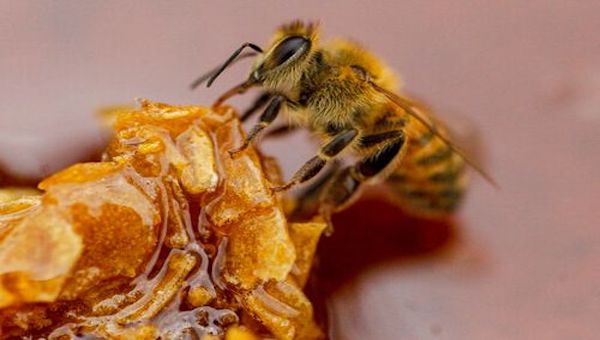 A drought has gripped Chile for 13 years and the flowers that feed honeybees in central Chile have grown increasingly scarce
A drought has gripped Chile for 13 years and the flowers that feed honeybees in central Chile have grown increasingly scarce
DROUGHT, PESTICIDES TAKE A TOLL ON CHILE'S CRUCIAL HONEYBEES
BY: EVA VERGARA - APSITE: ABC NEWS
TRENDING
Activism
Belief
Big Pharma
Conspiracy
Cult
Culture
Economy
Education
Entertainment
Environment
Global
Government
Health
Hi Tech
Politics
Prophecy
Science
Social Climate
Universe
War
SANTIAGO, Chile (AP) — A drought has gripped Chile for 13 years and the flowers that fed Carlos Peralta's honeybees around the central town of Colina have grown increasingly scarce.
He said he had lost about 300 hives since the start of November and was left with a choice: try to keep the 900 that remained alive with an artificial nectar or move them to a place where flowers and pollen are more abundant.
“If the bees die, we all die ... The bee is life," he said, referring to the insects' key role in pollinating plants both wild and commercial, helping Chile maintain its role as a major fruit exporter.
So Peralta decided to move his operations some 600 miles (1,000 kilometers) to the south, to Puerto Montt.
Andrés González, a regional expert on biodiversity for the U.N. Food and Agriculture Organization, said a reduced population of pollinating insects “has to do ... with the use of pesticides and fertilizers, monocultures, droughts caused in great part by climate change and by bad management of (water) resources.”
Those factors, along with parasites, have hit bee populations globally. And Chile has seen its exports of honey plunge over the past four or five years — a decline also aggravated by transport difficulties caused by the pandemic.
Marco Peralta chose to stay in Colina rather than join his brother Carlos in the south, saying he feared losing bees to pesticides if he moved.
An FAO study in 2018 found that Chilean imports of pesticides had grown by 460% over the previous two decades — a favor beekeepers blame for part of their losses.
“You enter an orchard with your bees and you don't know if you'll come out with living bees or dead ones,” said Carlos Peralta.
His brother Marco has been feeding his bees with sugar water augmented with other nutrients — though that leaves them unable to produce honey.
“The bees grow weak (with sugar water). It's like eating just pasta every day," said Mario Flores, a beekeeper in the southern town of Temuco.
Teresa Sarmiento, president of a beekeepers' association in Colina, compared it to “giving a sweet to a hungry child.”
Before the drought, beekeepers would use the substitute food during some winter periods, but now the practice continues nearly year-round.
González of the FAO said the substitute lacks proteins bees need to develop their bodies and nervous systems, and it leaves them more vulnerable to illnesses.
Click 3 Dots Below to View Complete Sidebar


